 W
WZygmunt Bauman was a Polish sociologist and philosopher. He was driven out of the Polish People's Republic during the 1968 Polish political crisis and forced to give up his Polish citizenship. He emigrated to Israel; three years later he moved to the United Kingdom. He resided in England from 1971, where he studied at the London School of Economics and became Professor of Sociology at the University of Leeds, later Emeritus. Bauman was a social theorist, writing on issues as diverse as modernity and the Holocaust, postmodern consumerism and liquid modernity.
 W
WJakub Berman was a Polish communist politician. An activist during the Second Polish Republic, in post-war communist Poland he was a member of the Politburo of the Polish Workers' Party (PPR) and then of the Polish United Workers' Party (PZPR). Alongside President Bolesław Bierut, Berman was responsible for party oversight of the Stalinist Ministry of Public Security, commonly known as the "UB". He also oversaw Poland's cultural affairs. From 1948, he was considered the second most powerful politician in Poland after Bierut, until removed from power in 1956, following Bierut's death.
 W
WBolesław Bierut was a Polish politician, communist activist and leader of the Polish People's Republic from 1947 until his death in 1956. He was President of the State National Council from 1944 to 1947, President of Poland from 1947 to 1952, General Secretary of the Central Committee of the Polish United Workers' Party from 1948 to 1956 and temporarily Prime Minister of Poland from 1952 to 1954. Bierut, a self-taught man, with full knowledge and iron resolve aimed to implement the Stalinist system in Poland. Together with Władysław Gomułka, his main rival, Bierut is chiefly responsible for the historic changes that Poland underwent in the aftermath of World War II. Unlike any of his communist successors, Bierut ruled Poland until his death.
 W
WJerzy Borejsza was a Polish communist activist and writer. During the Stalinist period of communist Poland, he was chief of a state press and publishing syndicate.
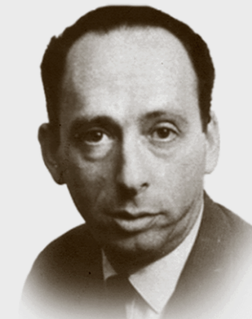 W
WWłodzimierz Brus was an economist and party functionary in communist Poland. He emigrated from Poland in 1972, removed from power after the 1968 Polish political crisis. Brus spent the rest of his life in the United Kingdom.
 W
WJulia Brystiger was a Polish-Jewish communist activist and member of the security apparatus in Stalinist Poland. She was also known as Julia Brystygier, Bristiger, Brustiger, Briestiger, Brystygierowa, Bristigierowa, and by her nicknames – given by the victims of torture: Luna, Bloody Luna, Daria, Ksenia, and Maria. The nickname Bloody Luna was a direct reference of her Gestapo-like methods during interrogations. Her pen name was Julia Preiss. Author of several books.
 W
WFranciszek Dąbrowski was an officer of the Polish Navy during the Invasion of Poland in 1939. In September 1939, he served at Westerplatte military transit depot, which took part in the Battle of Westerplatte. The Polish garrison fought against overwhelming odds and repulsed all German attacks from 1 to 7 September. After the surrender, he was imprisoned in several German POW camps.
 W
WGershon Dua-Bogen, alias 'Admoni', was a Polish communist. He was an active militant of the Communist Party of Poland (KPP) and of the Polish Workers' Party (PPR). He emigrated to Palestine, and became the general secretary of the Socialist Workers Party. He was expelled from Palestine for his political activities. During the Spanish Civil War, he served as a political commissar in the base of the International Brigades in Albacete.
 W
WPaweł Finder was a Polish Communist leader and First Secretary of the Polish Workers' Party (PPR) from 1943 to 1944.
 W
WMałgorzata Fornalska was a Polish communist activist and anti-Nazi resistance fighter.
 W
WWacław Frankowski ONCS was a Polish labour activist in Łódź in the interwar period, diplomat of the Polish People's Republic from 1953 to 1956.
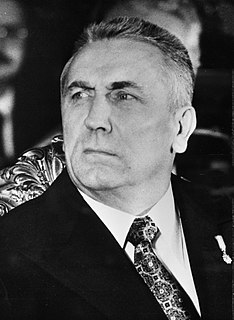 W
WEdward Gierek was a Polish communist politician and de facto leader of Poland between 1970 and 1980. Gierek replaced Władysław Gomułka as First Secretary of the ruling Polish United Workers' Party (PZPR) in the Polish People's Republic in 1970. He is known for opening communist Poland to the Western Bloc and for his economic policies based on foreign loans, which ultimately failed. He was removed from power after labour strikes led to the Gdańsk Agreement between the communist state and workers of the emerging Solidarity free trade union movement.
 W
WWładysław Gomułka was a Polish communist politician. He was the de facto leader of post-war Poland from 1947 until 1948. Following the Polish October he became leader again from 1956 to 1970. Gomułka was initially very popular for his reforms; his seeking a "Polish way to socialism"; and giving rise to the period known as "Gomułka's thaw". During the 1960s, however, he became more rigid and authoritarian—afraid of destabilizing the system, he was not inclined to introduce or permit changes. In the 1960s he supported the persecution of the Catholic Church, intellectuals and the anti-communist opposition.
 W
WZofia Gomułkowa, or Zofia Gomułka, was a wife of First Secretary of the Polish United Workers' Party, Władysław Gomułka, leader of communist Poland from 21 October 1956 until 20 December 1970. Zofia was a pro-Soviet activist since the age of 18, as well as an executive member of the delegalized Communist Party of Poland (KPP) in the interwar period. After the Soviet takeover of Poland at the end of World War II, she initially worked as her husband's secretary and later, as a communist functionary in the Warsaw headquarters of PZPR.
 W
WJuliusz Samsonowicz Hibner was a brigadier general in the Polish People's Army and recipient of the title of Hero of Soviet Union. He also served as the commander of the Internal Security Corps and later became a nuclear physicist.
 W
WAdam Teofil Humer was a Polish communist activist and high-ranking official of the Ministry of Public Security of Poland. Known for particular brutality. Humer tortured political prisoners whom he interrogated during the 1940s and 1950s.
 W
WMieczysław Zygmunt Jagielski was a Polish politician and economist. During the times of the People's Republic of Poland he was the last leading politician from the former eastern regions of pre-Second World War Poland.
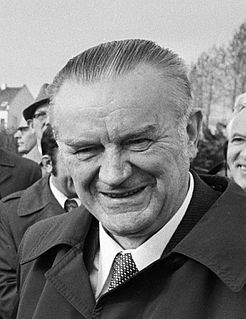 W
WGen. Piotr Jaroszewicz was a post World War II Polish political figure. He served as the Prime Minister of Poland between 1970 and 1980. After he was forced out of office he lived quietly in a suburb of Warsaw until his brutal 1992 murder.
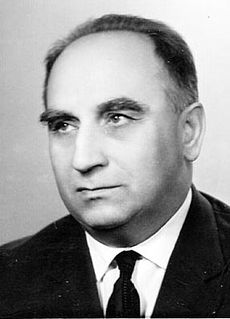 W
WStefan Jędrychowski was a Polish communist politician, economist and journalist, who served as deputy prime minister, foreign minister and finance minister in Poland.
 W
WFranciszek Jóźwiak was a Polish communist politician, military commander, chief of staff of the People's Guard, the People's Army and the Citizen's Militia as well as deputy chairman of the Council of Ministers of the People's Republic of Poland and a long time member of the Politburo of the Polish United Workers' Party.
 W
WStanisław Kania was a Polish communist politician.
 W
WPinkus Kartin was a Polish-Jewish communist activist and anti-Nazi resistance fighter.
 W
WLeon Kasman, pseudonyms "Adam," "Bolek," "Janowski," "Zygmunt" was a Polish communist journalist and politician of Jewish descent. Head of the propaganda and agitation department of the Central Committee of the Polish Workers' Party. He was a first editor-in-chief of the Trybuna Ludu daily, deputy to the Sejm of the Polish People's Republic. As a result of the conflicts within the communist party, Kasman resigned from this function in December 1953. He was among the “Puławianie" faction in PZPR. Leon Kasman died in 1984 and was buried at the Powązki Military Cemetery in Warsaw.
 W
WCzesław Jan Kiszczak (listen) was a Polish general, communist-era interior minister (1981–1990) and prime minister (1989).
 W
WZenon Kliszko, was a politician in the Polish People's Republic, considered the right-hand man of Polish United Workers' Party (PZPR) leader Władysław Gomułka.
 W
WVladislav Vikentyevich Korchits was a Soviet and Polish general. He supported the Bolshevik side during the Russian Revolution, joining the Red Army. He participated in the Polish-Soviet War. In the interwar period he graduated from the Mikhail Frunze Military Academy. He was imprisoned and tortured during the Great Purge, survived it and was reinstated afterward. He took part in World War II. From 1944 he was attached to the Polish Armed Forces in the East. After the war he remained in the People's Republic of Poland. He served in the Polish People's Army as the chief of Polish General Staff from 1 January 1945 to 18 January 1954. While in Poland, he joined the Polish Workers' Party, was the Deputy Minister of National Defense (1949/1950-?), and the deputy to the Polish parliament (Sejm) for the term 1952-1956. In 1954 he retired and returned to the Soviet Union. He died in Moscow.
 W
WWładysław Kowalski was a Polish communist politician, writer and journalist who served as the Minister of Art and Culture and the Sejm Marshal during the first postwar parliament Sejm of the Polish People's Republic (1947–1952) and, in his capacity as Sejm Marshal, ex officio, as the acting head of state for one day. He was also a publisher and writer.
 W
WLeon Kruczkowski was a Polish writer, publicist and public figure. He wrote books and dramas and was prominent in Polish theatre of the post-World War II period. His best known work is the drama Niemcy, written in 1949.
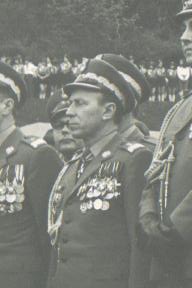 W
WTeodor Kufel, pseudonym Teoch, Ryszard Jankowski was a Polish military and political activist. During World War II he was active in the anti-Nazi movement. After the war, he served as a general in the Polish People's Army. From 1964 to 1979 he was commander of the Internal Military Service.
 W
WWitold Leder was a Polish military intelligence officer, activist, translator, and author. He shared in the ups and downs of the anti-Stalinist current of Polish communism, in which he was a lifelong participant.
 W
WJózef Lewartowski was a Polish communist politician of Jewish origin, revolutionary, member of the KPP and PPR one of the first organizers of the Jewish resistance in Nazi occupied Poland, co-founder of the Anti-Fascist Bloc.
 W
WEryk Lipiński was a Polish artist. Satirist, caricaturist, essayist, he has designed posters, written plays and sketches for cabarets, as well as written books on related subjects.
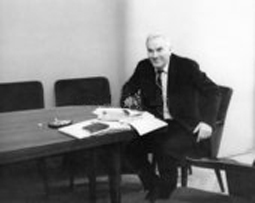 W
WWładysław Machejek was a communist official, writer, publicist and hoax artist during the Stalinist reign of terror in Poland following World War II. He wrote fabricated accounts of anti-communist underground mainly for his own political gains as regional party secretary and later member of the communist highest parliamentary echelons. Due to the coarse and infamous nature of his works, he has been described as a "legendary socialist scribbler".
 W
WStanisław Mieczysław Mazur was a Polish mathematician and a member of the Polish Academy of Sciences.
 W
WStefan Michnik was a military judge of the Soviet-dominated regime in post-World War II Poland, and a captain in the communist Polish People's Army. He was involved in the politically-motivated arrest, trial, imprisonment and/or execution of a number of Polish anti-communist fighters and activists. Many of those persecuted by Michnik also fought against Nazi Germany during World War II, as members of the Polish resistance.
 W
WKazimierz Romuald Mijal was a Polish communist politician and dissident, best known for founding the illegal Communist Party of Poland (Mijal) in opposition to the Polish United Workers' Party (PUWP) in 1965. He was born in Wilków Pierwszy.
 W
WHilary Minc was a Polish economist and communist politician prominent in Stalinist Poland.
 W
WMieczysław Moczar was a Polish communist politician who played a prominent role in the history of the Polish People's Republic. He is most known for his unorthodox, alternative socialist views attitude which influenced Polish United Workers' Party politics in the late 1960s. During this time, Moczar and his supporters challenged Władysław Gomułka's authority.
 W
WZygmunt Modzelewski was a Polish communist politician, professor, economist and diplomat.
 W
WZenon Nowak was a Communist activist and politician in the People's Republic of Poland. He was one of the members of the pro-Soviet Natolin faction of the PZPR Central Committee during the Polish October of 1956.
 W
WMarceli Nowotko was a Polish communist activist and first secretary of the Polish Workers Party (PPR).
 W
WEdward Ochab was a Polish communist politician and top leader of Poland between March and October 1956.
 W
WJulian Przyboś was a Polish poet, essayist and translator, one of the most important poets of the Kraków Avant-Garde.
 W
WStanisław Radkiewicz was a Polish communist activist with Soviet citizenship, a member of the pre-war Communist Party of Poland and of the post-war Polish United Workers' Party (PZPR). As head of the Ministry of Public Security of Poland between 1944 and 1954, he was one of the chief organisers of Stalinist terror in Poland. He also served as a political commissar and was made a Divisional General in Communist Poland.
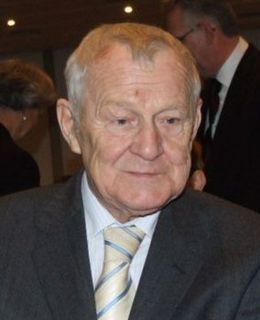 W
WMieczysław Franciszek Rakowski was a Polish communist politician, historian and journalist who was Prime Minister of Poland from 1988 to 1989. He served as the seventh and final First Secretary of the Polish United Workers' Party from 1989 to 1990.
 W
WMichał Rola-Żymierski was a Polish high-ranking Communist Party leader, communist military commander and NKVD secret agent. He was appointed as Marshal of Poland by Joseph Stalin, and served in this position from 1945 until his death. He supported the 1981 imposition of Martial law in Poland.
 W
WRoman Romkowski born Natan Grünspan-Kikiel, was a Polish communist official trained by Comintern in Moscow, who settled in Warsaw after the Soviet takeover, and became second in command the Ministry of Public Security during the late 1940s and early 1950s. Along with several other high functionaries including Stanisław Radkiewicz, Anatol Fejgin, Józef Różański, Julia Brystiger and the chief supervisor of Polish State Security Services, Minister Jakub Berman from the Politburo, Romkowski came to symbolize communist terror in postwar Poland. He was responsible for the work of departments: Counter-espionage (1st), Espionage (7th), Security in the PPR–PZPR, and others.
 W
WLeon Schiller or Leon Schiller de Schildenfeld was a Polish theatre and film director, as well as critic and theatre theoretician. He also wrote theatre and radio screenplays and composed music. He was born in Kraków under the Austrian rule during the foreign Partitions of Poland, to a family of Austrian origin that had been ennobled by Empress Maria Theresa.
 W
WFlorian Siwicki was a Polish military officer, diplomat and communist politician. He was a general in the Polish Army and Minister of Defense of Poland from 1983 to 1990.
 W
WWłodzimierz Sokorski was a Polish communist official, writer, military journalist and a Brigadier General in the People's Republic of Poland. He was the Minister of Culture and Art responsible for the implementation of the socialist realist doctrine in Poland. During World War II he escaped to the Soviet Union.
 W
WMarian "Marek" Spychalski was a Polish architect in pre-war Poland, and later, military commander and a politician. During World War II he belonged to the Polish underground forces operating within Poland and was one of the leaders of the resistance movement Gwardia Ludowa, then Armia Ludowa.
 W
WKarol Wacław Świerczewski was a Polish and Soviet Red Army general and statesman. He was a Bolshevik Party member during the Russian Civil War and a Soviet officer in the wars fought abroad by the Soviet Union including the one against Polish as well as Ukrainian Republics and in Republican Spain. In 1939 he participated in the Soviet invasion of Poland again. At the end of World War II in Europe he was installed as one of leaders of the Soviet-sponsored Polish Provisional Government of National Unity. Soon later, Świerczewski died in a country-road ambush shot by the militants from OUN-UPA. He was an icon of communist propaganda for the following several decades.
 W
WStanisław Trepczyński was a Polish diplomat, who served as the 27th president of the United Nations General Assembly.
 W
WMarian Turski is a Polish historian and journalist who served as the editor-in-chief of Sztandar Młodych, a nationwide daily newspaper of the Union of Polish Youth in 1956–1957 and from 1958 onwards, a columnist for the communist weekly Polityka as the head of the weekly's historical department.
 W
WEmil Wojtaszek was a Polish politician who served as the minister of foreign affairs of the People's Republic of Poland from 1976 to 1980.
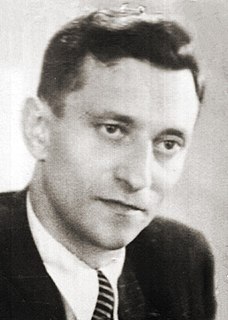 W
WRoman Zambrowski was a Polish communist politician.
 W
WAleksander Zawadzki, alias Kazik, Wacek, Bronek, One was a Polish communist politician, first Chairman of the Council of State of the People's Republic of Poland, divisional general of the Polish Army and the head of the Council of State of the Polish People's Republic from 1952 to 1964.
 W
WJerzy Jan Antoni Ziętek was a Polish politician and general. A Silesian Insurrectionist in his youth, during the Second World War he joined the Polish armed forces in the USSR and later became an important politician representing Silesia in the People's Republic of Poland.
 W
WStefan Jakub Żółkiewski was a Polish theoretist, historian of literature and literary critic. He was born and died in Warsaw. He was a co-founder of the Polish Workers' Party, editor-in-chief of Kuźnica (1945–1948), Polityka (1957–1958), Minister of Higher Education (1956–1959), director and professor of Polish Academy of Sciences and professor of Warsaw University.